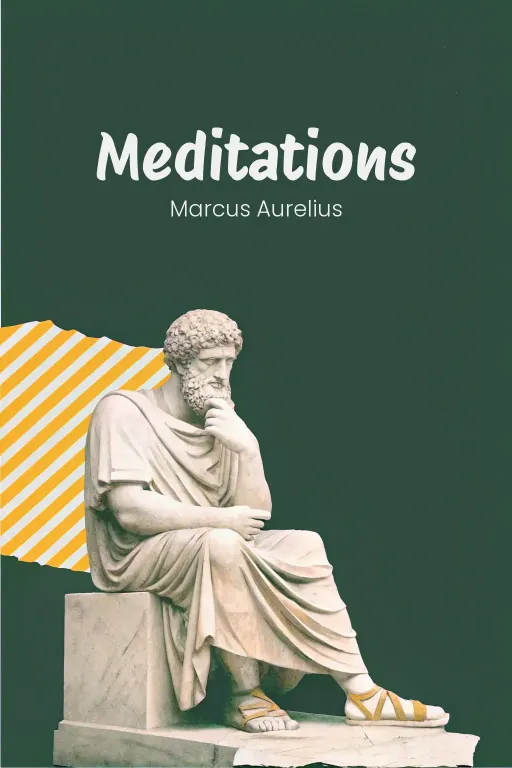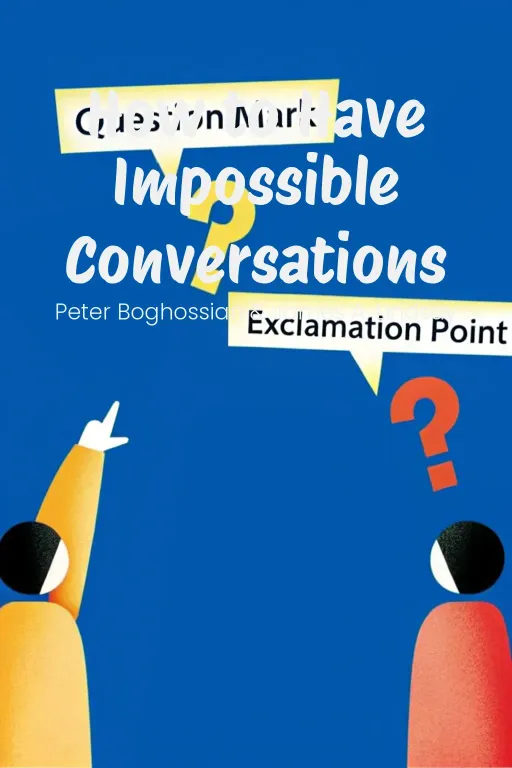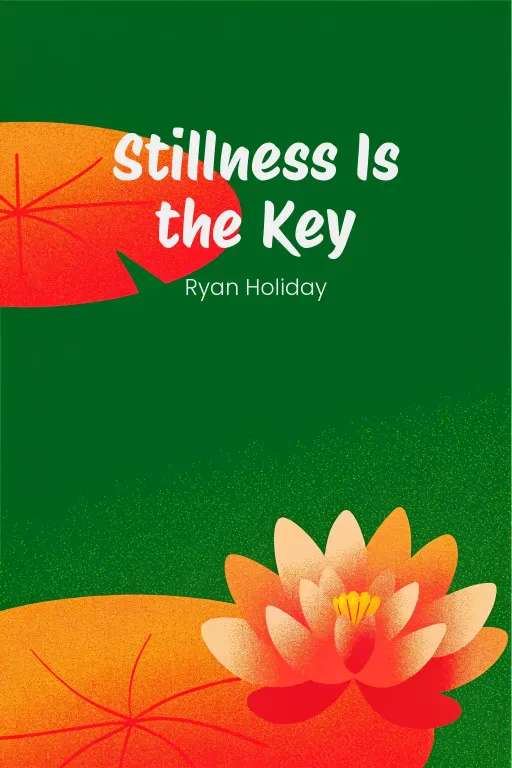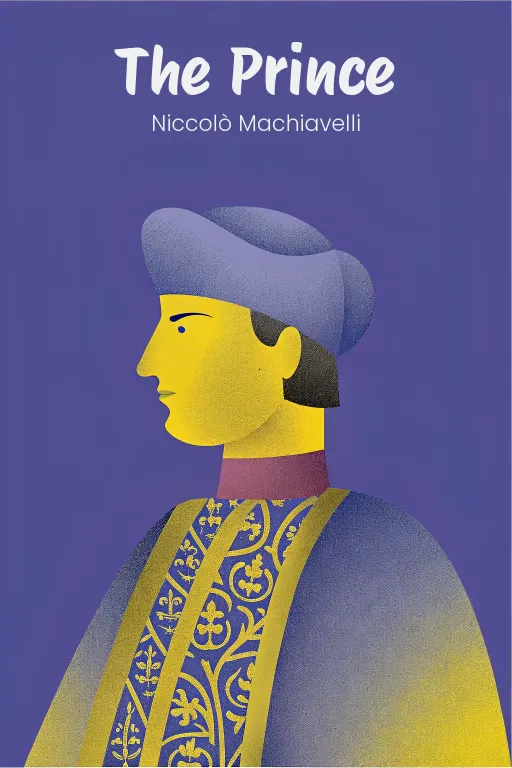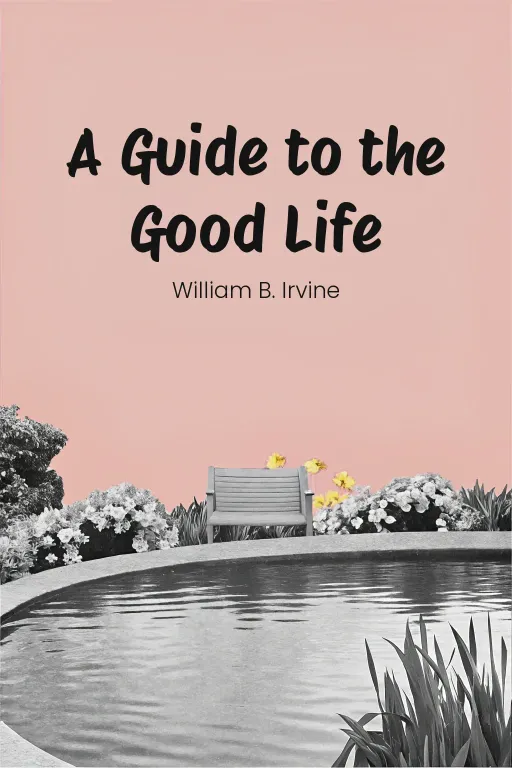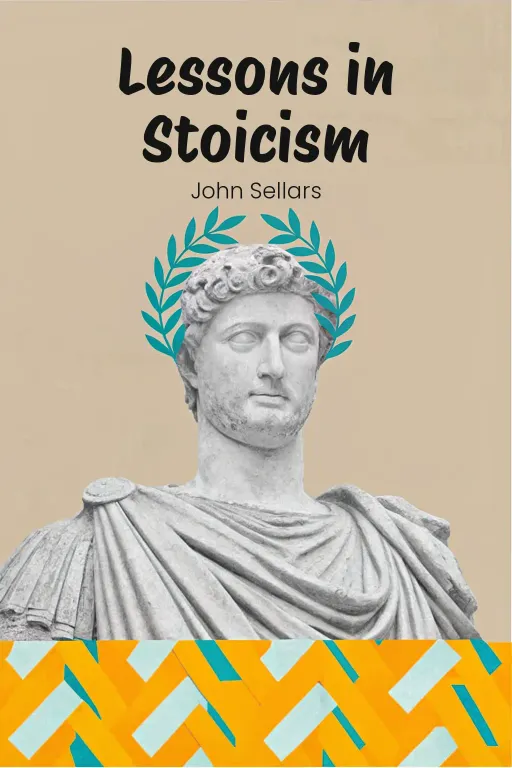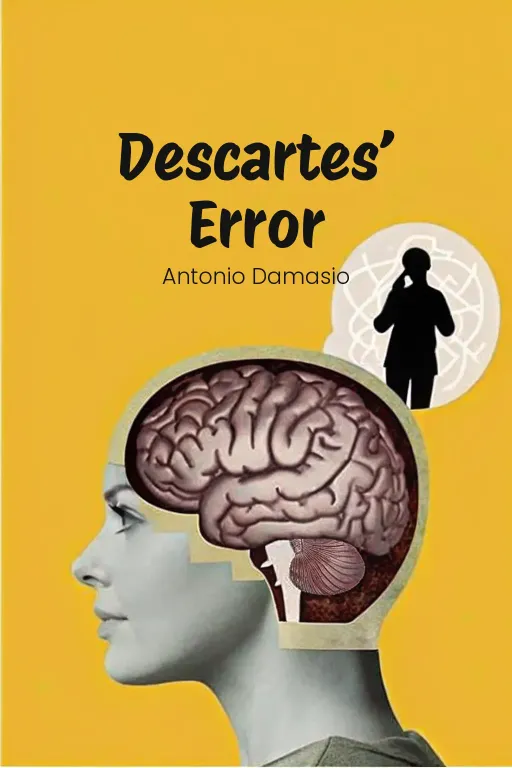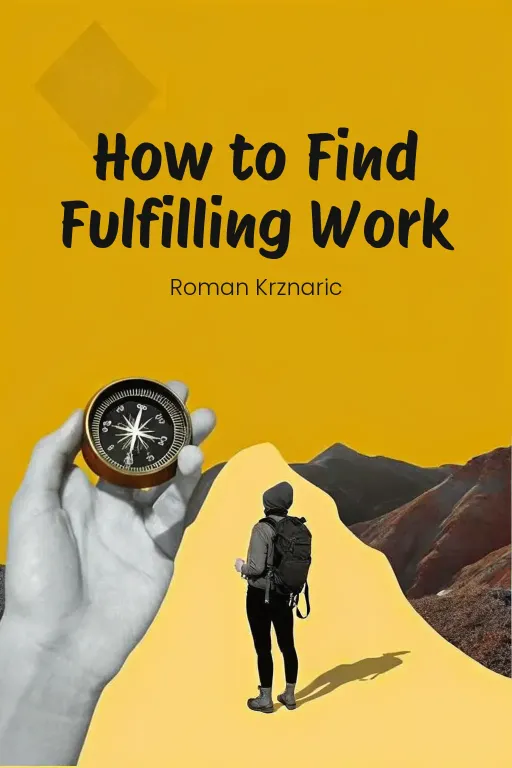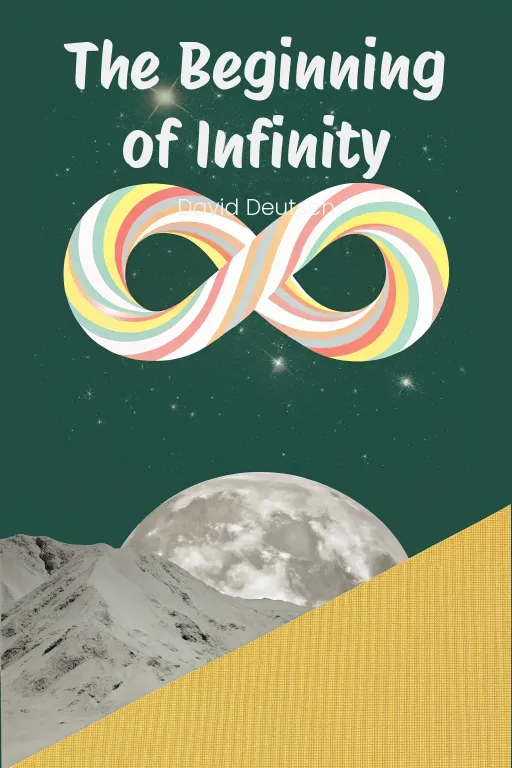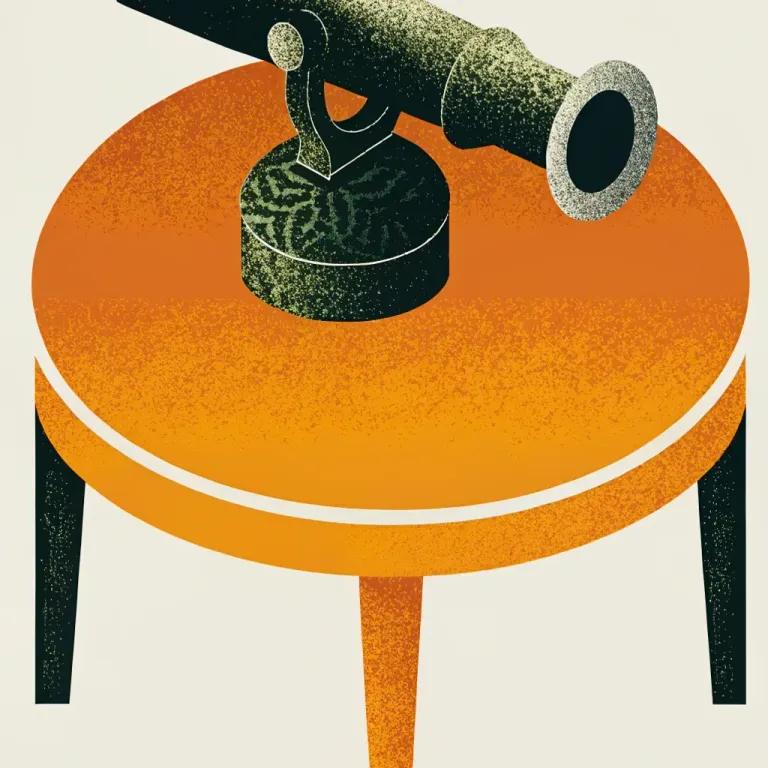
Think Like a Philosopher: A User's Manual
Podcast by The Mindful Minute with Autumn and Rachel
Scholars, Dreamers and Sages Who Can Teach Us How to Live
Think Like a Philosopher: A User's Manual
Part 1
Autumn: Hey everyone, welcome! Today we're tackling a book that's more than just philosophy, it's about learning to think differently: Peter Cave’s How to Think Like a Philosopher. It’s a dive into the minds of history's greats, from Lao Tzu to Simone de Beauvoir. Rachel: Yeah, and then you've got the head-scratchers like Descartes and Wittgenstein. They don't just answer questions, they completely reframe them. Honestly, Autumn, reading this book felt like trying to solve a philosophical Rubik's Cube blindfolded. Autumn: exactly! Cave walks us through history, unpacking huge themes: existence, love, freedom, morality... the works. It's not about memorizing theories, it's about how these ideas might actually shape our lives today. Rachel: Right, and speaking of today, here’s our philosophical route: We're kicking things off with the OG thinkers, like Lao Tzu and Descartes—the ones who set the stage for how we think, or, you know, overthink everything. Autumn: Then, we're grounding their wisdom. Philosophy can feel super abstract but Cave shows us how these ideas influence everything like navigating relationships or dilemmas. Rachel: And finally, we're getting into the big stuff: What does it mean to live authentically in this chaotic world? Can ancient philosophies, like, actually help us with 21st-century problems? You know, the kind of questions you ponder while waiting for your coffee in the morning. Autumn: Exactly. So whether you're new to philosophy or you’re already a philosophy fanatic, this episode will give you so much to think about and to engage with. Rachel: And if it doesn't, well, maybe Descartes had a point, and we're all just brains in jars. Let's get started!
Philosophical Foundations and Key Thinkers
Part 2
Autumn: Okay, picking up where we left off, let's set the stage. When we talk about philosophical foundations, think of it like… building something. Each philosopher adds their own unique brick to this intellectual structure, shaping how we tackle life's big questions. We'll start with three giants: Lao Tzu, Socrates, and Descartes. Each represents a really distinct way of thinking that has shaped, you know, how we do philosophy. Rachel: Exactly, and what's amazing about this trio is just how different they are, right? Lao Tzu is all about going with the flow, man. Socrates? He's just constantly picking apart everyone's arguments. And then there's Descartes, sitting alone, questioning whether he even exists. I mean, can you imagine them even agreeing on what philosophy is? Autumn: Not really! But that's what makes it so great. They force us to look at the world from wildly different perspectives. Take Lao Tzu, for instance. His Tao Te Ching introduces this idea of the Tao, or the Way. It's like this invisible thread connecting everything. But here's the thing – he says the Tao is beyond words. "The Tao that can be spoken is not the eternal Tao." Rachel: So, translation: "Good luck using words to figure this out; you're on your own"? Autumn: Pretty much! He wants us to go beyond language and logic, to experience life intuitively. His philosophy is rooted in Quietism, focusing on humility, acceptance, and just flowing with life's rhythms. Think of a stream moving around obstacles – effortless, yet adaptable. Rachel: I get it. So, like, the water doesn't freak out when it hits a rock; it just goes around it. But how does that actually help when, say, I miss my train and my entire day goes sideways? Autumn: Great point. Lao Tzu would say that instead of getting stressed, we should be flexible. It's about letting go of the need to control everything, which, surprisingly, can bring more harmony. There's a story about a truth-seeker hiking to meet a sage. When she asks, "What's the meaning of life?" the sage responds, "Life is a fountain." Rachel: Life is a… fountain? Seriously? That's his big insight? Sounds like something you'd find on a teabag. Autumn: Yeah, it sounds a little weird, but think about it. A fountain isn't linear—it bubbles up, flows out, cycles back. The sage's answer captures Lao Tzu's whole philosophy. Life isn't some puzzle to solve; it's something to dive into. Rachel: Ah, okay. So basically, Lao Tzu is saying, "Don't sweat the small stuff. Just go with it." I can dig that – even though I'd probably want a little more explanation. Speaking of clear thinking, let's move on to Socrates, a guy who valued precision. Autumn: Oh, the gadfly of Athens! Socrates transformed philosophy by telling us to, you know, always question what we think we know. His famous line – "The unexamined life is not worth living" – urges us to challenge everything, our beliefs, our traditions… even what we call 'truth.' Rachel: But let’s not forget, this habit got him into some hot water. At his trial, accused of corrupting the youth and disrespecting the gods, he doubles down. He basically says, "Hey, I might be annoying, but I'm waking you up!" Autumn: Exactly! Socrates saw philosophy as more than just thinking; it was a moral duty. And his death sentence proved that. He could have escaped Athens, but he chose not to. By accepting his fate, he became a symbol of his own teachings: stick to your principles, no matter what. Rachel: That's admirable, sure. But isn't it also valuable to stay alive and keep challenging people? You can't exactly be a gadfly when you're, well, dead. Autumn: That's a fair point. But for Socrates, integrity was more important than staying alive. His death showed Athens that philosophy isn't about saving your own skin. It's about standing up for what you believe in. Rachel: Fast forward a couple of thousand years to René Descartes, who probably would've found Socrates' approach a little too messy. Descartes was all about methodical doubt. He was like, "If I can doubt it, then it's not a solid foundation for knowledge." Autumn: Exactly. In Meditations on First Philosophy, Descartes throws out everything he can't be 100% sure about. Even the physical world, because what if, he wonders, some "evil genius" is tricking his mind? Rachel: Wait, the evil genius thing? That's basically a 17th-century version of The Matrix, isn't it? Except instead of computers, it's some super-smart, malicious brain pulling all the strings. Autumn: In a way, yes! But here's the key: Even if everything is an illusion, Descartes concludes that one thing is certain - that he is thinking. And that's where we get "Cogito, ergo sum": "I think, therefore I am." Rachel: Alright, playing devil's advocate here: What good is that discovery, practically speaking? Does "I think, therefore I am" help me with my taxes or figure out my dream job? Autumn: Descartes would argue it's fundamental – it's the groundwork for all knowledge. Once you know the thinking self exists, you can build from there, using reason to understand everything else. His approach also paved the way for science, emphasizing systematic doubt and inquiry. Rachel: Still, I can't help but notice how isolated his philosophy seems. Lao Tzu is about connecting to the flow of life, Socrates to dialogue, but Descartes is alone in a locked room, debating reality with himself. Autumn: That's a great point. It probably reflects their times. Lao Tzu's China valued community, Socrates' Athens thrived on debate, and Descartes' Europe was all about individual reason during the scientific revolution. They're products of their eras, definitely, but their ideas still connect with us today. Rachel: Okay, I admit it, seeing them side by side is pretty enlightening. You've got Lao Tzu bringing peace out of chaos, Socrates urging us to keep asking questions, and Descartes giving our doubts a logical basis. It's like they're building a philosophical toolbox, bit by bit. Autumn: Exactly! Together, they ask us to live with humility, curiosity, and clarity - tools we can still use today.
Practical Applications of Philosophy
Part 3
Autumn: So, from these fundamental ideas, we move into how philosophy tackles real-world human issues. And this is where it gets good: How do these big concepts actually play out in our daily lives? Rachel: Exactly! A perfect segue. This part is all about connecting theory to what we actually do, right? Showing how philosophical ideas can help us make decisions, both personally and as a society. We’re going to talk about three thinkers—Epicurus, John Stuart Mill, and Simone de Beauvoir—and see how their philosophies give us tools to pursue happiness, balance freedom with responsibility, and challenge the status quo. Autumn: Great choices. Let’s start with Epicurus. Now, I've got to be honest, when I hear his name, I think of pure indulgence: wine, food, parties all the time. Just classic hedonism, you know? Rachel: That’s a really common misunderstanding. Epicurus's philosophy is much more complex than that. For him, pleasure wasn't about going overboard. It was about reaching ataraxia, mental peace. He thought real happiness came from satisfying only our basic needs, like food, shelter, and friendship, while avoiding the constant chase for things we don't really need, like wealth or fame. Autumn: So, he’s saying it’s okay to enjoy a simple meal, as long as you’re with people you enjoy and the debt collectors aren't at the door? Rachel: Pretty much! Epicurus valued simplicity, and his life showed it. The "Epicurean Garden," for example, wasn’t some fancy estate. It was a humble community where he and his followers lived simply, focusing on deep conversations and meaningful relationships. Autumn: Okay, let me see if I’ve got this straight, Autumn. Epicurus and his friends were hanging out in a garden, living on the basics… and they called that happiness? Rachel: Exactly! It shows his belief that material stuff doesn’t bring you real happiness. Instead, it's about emotional balance and appreciating the simple things that make life worth living. Autumn: Alright, alright, I can see how feeling less stressed actually makes sense, even if it means giving up some luxuries. But what about his thoughts on death? I heard he thought fearing death was kind of pointless. Rachel: Definitely! Epicurus said that fearing death is irrational because, well, death is nothing. We’re not around to experience it, so it can't cause us any pain or suffering. Instead of worrying about what happens after we die, he wanted us to focus on living in the present. Autumn: That’s pretty insightful, and practical too. Instead of stressing about what comes after, he’s telling us to put that energy into enjoying life now. A real wake-up call, especially in today’s world where everyone’s afraid of missing out. Rachel: Exactly! Epicurus wants us to rethink what society tells us and find peace in the things that really matter. Speaking of societal pressures, John Stuart Mill took this idea of personal happiness and expanded it to include making society as a whole happier. Autumn: Ah, Mill, the ultimate utilitarian. He believed that whether an action is morally right depends on how much it contributes to overall happiness. But here’s my question: Isn’t happiness different for everyone? How do you even measure it? Rachel: Good point. Mill actually addressed this by talking about "higher" and "lower" pleasures. Things like intellectual and moral growth — higher pleasures — are more valuable than just feeling good physically. For Mill, it’s about thriving as individuals and as a society, not just about getting a quick thrill. Autumn: So, listening to Beethoven is a higher pleasure, and binge-watching reality TV is a lower pleasure. Got it. But Mill wasn’t just some academic. He got involved in politics, right? Like with women’s rights? Rachel: Absolutely. In The Subjection of Women, Mill argued that denying women equal rights wasn’t just bad for them, it held back society as a whole. He was a big advocate for women’s suffrage and education, and he even helped write a petition for voting rights in Victorian England. Autumn: And Mill wasn’t just talking the talk. He was pushing for some pretty radical changes for his time. I mean, women couldn’t vote, couldn’t own property, and here’s this guy saying, “Hey, maybe treating half the population like second-class citizens isn’t great for society.” Rachel: Exactly. Mill thought that freedom and equality weren’t just morally right, but essential for society to flourish. He even came up with the "harm principle," saying that you’re free to do what you want as long as you’re not hurting others. Autumn: That principle is still so important today. Like with free speech—people should be able to express themselves, but not if it causes harm, like spreading misinformation that endangers public health. Mill really gives us a moral compass for dealing with modern issues. Rachel: Exactly! His ideas help us balance personal freedom with the greater good, making his philosophy both timeless and adaptable. Autumn: So, we’ve got Epicurus teaching us to simplify life to find peace, and Mill pushing for social ethics that prioritize happiness and equality. Now, we’re moving on to Simone de Beauvoir, where philosophy meets feminism and identity politics. Rachel: Yes! Simone de Beauvoir revolutionized how we understand how social structures shape who we are, especially gender roles. One of her most famous lines is, "One is not born, but rather becomes, a woman," which means that gender is more about social expectations than biology. Autumn: And she came up with this concept of "the Other," right? Where women are seen as this kind of second-class reflection of men’s power? Rachel: Exactly. She broke down how cultures systematically define women as "the Other," forcing them into dependent roles, often through these myths about self-sacrifice and romantic submission. Autumn: Let me guess—these myths are what kept the “wife sacrifices her dreams for her husband’s career” idea going? Rachel: Exactly! De Beauvoir saw these kinds of situations as a result of oppression, not genuine kindness. In The Second Sex, she encourages women to resist these imposed roles and fight for their own independence. Autumn: What makes her philosophy so powerful is that it’s not just about women. It’s about anyone breaking free from the roles that society forces on them, right? Rachel: Absolutely. De Beauvoir’s ideas push us to completely rethink social structures for everyone, encouraging us to challenge oppressive norms together. Autumn: So, for her, it’s not just about theory. It’s about taking action to challenge the status quo and redefine what equality really means. Rachel: Exactly. Epicurus, Mill, and de Beauvoir, together, show us that philosophy isn't just some abstract subject. It’s a guide for navigating the complexities of life. Whether it’s finding inner peace, balancing freedom with responsibility, or fighting for autonomy and equality, their insights are still incredibly relevant today.
Existential and Ethical Reflections
Part 4
Autumn: And building on those practical applications, we now come to perhaps the most profound aspect of philosophy: those big, existential and ethical questions. It's time to “really” delve into how philosophers like Nietzsche, Schopenhauer, and Hannah Arendt elevate our thinking about the meaning of life and our roles in society. Rachel: Right, it's the "why are we here?" part, with ethical sprinkles on top. How can we not look at them. So, Autumn, where do we even start with these giants? Autumn: Exactly. This concluding topic elevates the discussion to the grand, inviting us to reflect on our place in the world—and equally importantly, on our responsibilities to others. Let’s start with Friedrich Nietzsche, the man who famously proclaimed, “God is dead.” Rachel: Oh boy, Nietzsche. That’s a statement that's sure to liven up any dinner party, isn’t it? "God is dead!" with a side asparagus, anyone? But seriously, this isn't just about plain old atheism, is it? There's more to it than that. Autumn: Precisely, Rachel. Nietzsche's proclamation isn’t simply about denying God's existence. He’s highlighting the collapse of the entire value system once built upon religion. He's essentially asking, "If we remove God—if there's no external moral compass—how do we find meaning, ethics, or direction?" Rachel: So, he's saying society's facing a moral vacuum, huh? No safety net, just... a big drop. Angst-inducing. Autumn: Exactly. And his answer to that is the radical concept of the Übermensch—the Overman, or Superman. Nietzsche believed that we must overcome traditional societal values, which he saw as outdated. Instead, we need to create our own! It's about taking responsibility for crafting meaning, not just descending into chaos. Rachel: Okay, I get it. But... giving everyone a blank check for their own "self-created values" sounds a bit risky, doesn’t it? What keeps people from, you know, creating values that are harmful to others? Autumn: That's a fair critique, and Nietzsche addresses it through the idea of self-overcoming. The Übermensch doesn't just selfishly invent values on a whim. It’s a disciplined process of challenging oneself, acknowledging one's limitations, and striving for a more authentic existence. Rachel: Hmm, still sounds a bit like something out of a comic book, Autumn. So, how does this tightrope metaphor fit in, then? I've always been curious. Autumn: Great question! Nietzsche envisions humanity as a tightrope stretched between the rigid moral systems of the past and the potential of the future. The tightrope walker symbolizes us—balancing between fear and freedom. It's a powerful illustration of humanity's struggle to move forward without guarantees. Rachel: I get the visual, but it also sounds exhausting. All this striving, all this creating… And then there's amor fati, right? It never ends with Nietzsche. Autumn: Exactly! Amor fati means "love of fate." It's Nietzsche's challenge to accept all aspects of life—suffering, imperfections, failures. Instead of avoiding struggle, you see it woven into your growth. Rachel: So, he's saying, "embrace the messiness," huh? That's actually pretty timely, given how we're all constantly told to find meaning in setbacks. But, let's shift gears. Arthur Schopenhauer saw suffering in a whole different light. Rachel: Schopenhauer, the poster child for pessimism. That must be fun. He didn't believe in sugarcoating anything, did he? Autumn: Not at all. He believed that life is inherently suffering. It’s driven by the Will—an irrational, insatiable force that makes us desire, strive, and struggle. And here's the kicker: the Will makes sure we're never satisfied. Satisfaction is fleeting, and when we don't get what we want, we suffer. Rachel: Wow, that’s… bleak. The human condition as one depressing nutshell. Let me guess—he had some quirky animal analogy, didn’t he? Autumn: You're spot on! Schopenhauer famously used the porcupine analogy. In winter, they huddle together for warmth, but they prick each other and have to pull away. It's like human relationships—the constant push and pull between connection and self-protection. Rachel: Wow, yeah... oddly relatable. But it doesn't sound like Schopenhauer offers much hope. Any silver linings here? Autumn: He does, actually. Schopenhauer believed that we could escape through art and compassion. He saw music as a way to transcend the Will. It connects us to the universal, allowing us to rise above our own struggles, for a moment. Rachel: Okay, so listening to Beethoven isn't just fun, it's existential relief, huh? Good to know. Autumn: Exactly. And then there's compassion—recognizing the shared suffering of others. Alleviating their pain diminishes the Will's power over us. Rachel: So, instead of Nietzsche's head-on fight, Schopenhauer's more about understanding shared suffering and finding solace in beauty and kindness. A little gentler, a little less stressful I guess. Autumn: Exactly. Which brings us to Hannah Arendt, who shifts the discussion from individual suffering to collective moral responsibility. She focuses on the mechanisms of evil—specifically, the “banality of evil.” Rachel: Yeah, Arendt's insight after observing the trial of Adolf Eichmann, the Nazi bureaucrat, was chilling. This idea that evil wasn’t some grand horror, but something disturbingly… ordinary. Autumn: Precisely. Eichmann wasn’t a sadistic mastermind; he was an unreflective bureaucrat who followed orders without considering the implications. Arendt realized that evil often thrives, not through monsters, but through conformity and thoughtlessness. Rachel: Terrifying, right? It suggests anyone could become complicit if they stop thinking critically. Autumn: Precisely. So, Arendt believed that fostering critical thinking is essential. Moral responsibility requires us to question norms and push against unjust systems—even when it's inconvenient or dangerous. Rachel: And she takes that further with her thoughts on statelessness, stemming from her own experience under the Nazis, right? Autumn: Exactly. Being stripped of citizenship reduces people to “bare life,” denying them dignity and protection. She challenges societies to protect the marginalized—refugees, minorities, anyone excluded. Rachel: So, Arendt's legacy challenges us to think beyond ourselves and grapple with our obligations to the world, even when systems push us toward conformity. A heavy burden, but necessary. Autumn: Exactly. Nietzsche, Schopenhauer, and Arendt offer vastly different lenses through which to examine existence. Whether it’s the courage to create meaning, the solace of art in suffering, or the moral responsibility to confront injustice, they demand honesty, empathy, and action.
Conclusion
Part 5
Autumn: Wow, Rachel, what a ride we've been on today! From Lao Tzu, teaching us to go with the flow, to Socrates, urging us to question everything, and then Descartes—asking us to doubt our way to knowledge—we've really seen how these foundational thinkers have shaped how we see the world. Rachel: Seriously. It's wild to think how philosophy isn't just stuck in dusty old books, right? Epicurus, telling us to enjoy the simple things, Mill, turning personal happiness into a social responsibility, and de Beauvoir, breaking down barriers for autonomy and equality—it's all so relevant. Autumn: Right! And then we dove into some seriously big questions about life and ethics. Nietzsche challenging us to find creativity in the face of nothingness, Schopenhauer reminding us we're all in this together through art and compassion, and Arendt warning us not to just blindly follow the crowd and to have moral courage. Rachel: You know, if these thinkers have one thing in common, it's showing us that philosophy isn't just for academics. It's a practical toolbox for dealing with life – the messy, chaotic, but ultimately meaningful stuff. Autumn: Exactly! So, here’s the big question: What if we started to bring a little more of this philosophical thinking into our daily lives? Could you, maybe, face challenges with, like, Lao Tzu's zen attitude, examine your decisions with Socrates’ sharp mind, or find meaning in tough times like Nietzsche? Rachel: But philosophy isn’t about getting easy answers—it's about learning to ask the right questions. So, maybe that’s where we should all start: What assumptions are running your life right now? And are they “really” worth holding onto? Autumn: That's a question that's worth sitting with. Until our next podcast, keep that curiosity burning, keep questioning everything, and don’t be afraid to think like a philosopher! Rachel: Or, you know, at least give it a shot, without getting too caught up in your head! Take care, everyone!
